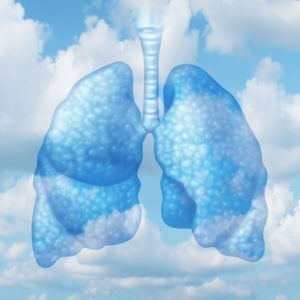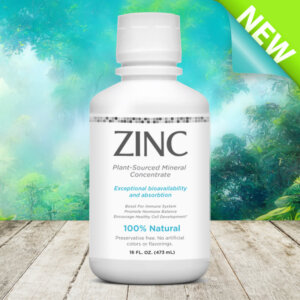Lung Capacity is Best Predictor of Health, Longevity
We often think of heart health as the determining factor in our overall wellness, but we may be missing the mark. Lung capacity affects our health, and you can easily overlook it, but it may be one of the most important predictors of health and longevity.
Even though we often think about the health of our heart as being the best predictor of our overall health, this may not be the determining factor. The often overlooked but highly predictive aspect is the capacity of our lungs to take in and process oxygen.
As We Age, Lung Volume Decreases
Around the age of 30, we begin to lose our lung capacity. By age 50, the upper limit of our lung capacity may only be 50% of what it was in our youth. When the respiratory function is impaired, less oxygen gets into our bloodstream, and thus our cells receive less oxygen. This decreased capacity is the reason for shortness of breath, reduced stamina and endurance, and more susceptibility to respiratory illness that often increases as we age.
Besides the natural aging of our lungs and its associated decreased capacity, we access only 10-20% of our total breathing capacity for most of us living a modern life, which leaves us short on energy and compromises optimum health and well-being. The Framingham study showed that those with an abundance of lung volume were healthier than those with shallow lung volume.
Some of the Science

The famous Framingham study (which followed 5,200 individuals for three decades) demonstrated that lung volume is the most significant predictor of health and longevity. Those with higher lung capacity were healthier and lived longer than those with decreased lung capacity.
According to Dr. Al Sears, in his newest edition of PACE In the 12-Minute Fitness Revolution, studies have shown that your lung capacity is absolutely the best indication of your lifespan. The better your lungs work, the longer you’ll live.
Additionally, Dr. Sears, Drs. William B. Kannel and Helen Hubert examined Framingham Heart Study data and concluded that “your lungs are the number one predictor of death.”
Decreased lung capacity has the following negative implications on our health:
- A lack of oxygen impairs metabolic and digestive functions.
- During the activity, our stamina and endurance decrease more rapidly.
- Reduced oxygen reserves increase the risk of heart attacks and strokes.
- Less oxygen means poorer energy and more general fatigue.
- There is a decline in general focus, concentration, and memory without proper respiration.
- And inflammation is correlated with decreased lung capacity.
How to Retain and Regain Your Lung Capacity
From a NaturalNews article:
Many view lung capacity loss as a normal degenerative process that can`t be stopped. But this is simply not true. Lung capacity can be retained and even restored. Some practices that can help build lung capacity include:
- Regular practice of deep breathing exercises. Learn to take deep breaths, engage the lungs and flood the body with fresh oxygen.
- Play a wind instrument. Some suggest practicing a wind instrument like a flute or oboe for at least 10 to 15 minutes daily to improve lung capacity.
- Exercise for lung capacity. High intensity exercises that create an oxygen debt trigger metabolic processes that will increase lung capacity over time. Low intensity duration activities are more likely to negatively affect lung volume unless supplemented with high intensity interval training, which challenges the lungs to rebuild.
Many view lung capacity loss as a normal degenerative process that can`t be stopped. But this is simply not true. Lung capacity can be retained and even restored. Some practices that can help build lung capacity include:
- Regular practice of deep breathing exercises. Learn to take deep breaths, engage the lungs and flood the body with fresh oxygen.
- Play a wind instrument. Some suggest practicing a wind instrument like a flute or oboe for at least 10 to 15 minutes daily to improve lung capacity.
- Exercise for lung capacity. High intensity exercises that create an oxygen debt trigger metabolic processes that will increase lung capacity over time. Low intensity duration activities are more likely to negatively affect lung volume unless supplemented with high intensity interval training, which challenges the lungs to rebuild.
— NaturalNews
According to SunFood.net, when you can breathe with ease and your oxygen capacity increases, it has the benefit of strengthening every healthy biochemical reaction in the human body from:
- Killing germs, viruses, bacteria, fungi, and yeast.
- Enhancing brain function.
- Increasing vitality of the muscles.
- Speeding recovery times after sickness or injury.
- Neutralizing free radicals.
- Healing wounds.
- Enhancing the body’s waste treatment in the liver,
- kidneys, intestines, and lymphatic systems.
To supplement your newfound focus on better breathing and increasing your lung capacity, taking a safe bio-available liquid oxygen product like OxygenSuperCharger is a reasonable consideration. When created using our proprietary process, Oxygen water gives you 35% ASO stabilized oxygen, which is biologically available for your cells and overall health.

-

Ultra Strength OxygenSuperCharger2, 25% Stronger, 16–Ounce Bottle
$119.97 Add to cart -

Ultra Strength OxygenSuperCharger2, 25% Stronger, 2–Ounce (Sample Size)
$35.97 Add to cart -

Original 35% Strength OxygenSuperCharger, 16–Ounce Bottle
$96.97 Add to cart -

Original 35% Strength OxygenSuperCharger, 2–Ounce (Sample Size)
$27.97 Add to cart -

MineralSuperCharger, Premium Multi-Mineral Supplement, 32-Ounce Quart
$98.97 Add to cart -

MineralSuperCharger, Premium Multi-Mineral Supplement, 8-Ounce (Sample Size)
$29.97 Add to cart -

Zinc – Plant-Sourced Mineral Concentrate, 16-ounce
$24.97 Add to cart -

O4 Nasal Spray with Zinc
$14.97 Add to cart






